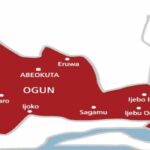The decision of the Federal government to shut the country’s land borders virtually brought some West African countries on their knees economically. That decision which was taken in view of some of the country’s neighbours deliberately circumventing the interest of Africa’s biggest economy, through their action and inaction, indirectly promoting smuggling into Nigerian territory made some countries especially Benin Republic, Ghana and Niger Republic groan.
While that closure was made some months ago, the effects keep emanating by the day with the situation teaching us different lessons.
One of the lessons is that, it is getting clearer that Nigerians need to start patronizing locally-made products, especially as it pertains to their food consumption as the case of the rice staple has shown across the country. This has thrown up a challenge for local rice producers to improve the quality of their produce, ensure they increase the quantity of their production to meet up with demand as well as ensure consumer-friendly price.
The reports in the media that Rice Farmers Association of Nigeria, auto-manufacturers and the Poultry Farmers Association of Nigeria have called for the borders to remain shut is testimony that the governments decision truly favours them.
In terms of security, the government also says that its decision has improved security and aided the country in its war against Boko Haram as the group and other criminals have been deprived of supply of arms and ammunition.
Also of importance is the fact that many smugglers have been rendered jobless as the Customs Service through its various interceptions have made smuggling unprofitable or better still riskier than before.
As at Monday 25th November, 2019 the Federal Government revealed that N3,235,126,420 worth of goods had been seized and 296 illegal immigrants arrested since the borders were closed blaming Benin and Niger Republics for not playing their part in curtailing smuggling acrooss the Nigerian borders.
Even the Central Bank of Nigeria (CBN), has linked the stability of the Naira and improved results on its monetary policies to the border closure.
The border closure has also brought with it different negatives. One of the negatives has been the rise in inflation to 11.61 percent majorly due to soaring food prices while many export-dependent businesses have not been active due to the border closure. The Nigeria Employers’ Consultative Association (NECA) also warns that the effect may lead to job losses. There are already reports from other West African nations of plans to boycott nigerian-made products in retaliation.
A major take-away from all these issues is that West Africa needs Nigeria more. But underneath that fact is a lesson which may be unknown to many. And that lesson is that most of these countries are utilizing the ECOWAS Trade Liberalisation Scheme (ETLS) to their advantage.
The scheme which was introduced in 1985 allows for free flow of locally-produced goods within the West African sub-region enabling business owners export their goods without payment of tariff thereby widening the scope of reach of businesses and increasing profits. The major condition is that 60 percent of the raw materials used for the production of the goods must be made in the country of export.
34 years after, while some of the countries have used the scheme to their advantage Nigeria is still trying to play catch-up placing third behind Ghana and Ivory Coast in terms of the utilization of the ETLS.
As the performance of countries in ETLS show, Ghana and Ivory Coast have utilized our population to their advantage while we have not adequately used theirs to our advantage. It is therefore not surprising that some consumers in the sub-region would be threatened to boycott Nigerian-made goods as the border closure has affected their ability to enjoy the benefits of the scheme.
This is why the Nigerian Export Promotion Council (NEPC) in collaboration with the Ogun State Ministry of Commerce and Industry has been making efforts to awaken entrepreneurs’ consciousness on the need to utilise the opportunity made available through the ECOWAS Trade Liberalisation Scheme (ETLS).
Apart from the ETLS, the African Continental Free Trade Agreement (ACFTA) is also at our door steps. The ACFTA also opens up the African market to African businesses and allows them to trade without the usual trade barriers. While the Agreement opens up markets on the continent including that of Nigeria, it is how it is utilized by Nigerian businesses that will determine whether it becomes a blessing or a curse for the country economically. Nigerian businesses need to take the advantage of these opportunities.
Beyond these two policies, the Ministry is already looking at utilizing another scheme, the African Growth and Opportunity Act (AGOA) in the year 2020 by partnering the Nigerian Export Promotion Council (NEPC) in making sure Adire fabric is exported to the United States of America duty-free. Adire fabric maked and sellers must see this as an opportunity which they must not mis or under-utilise.
What this indicates is that there are different opportunities made available through the partnership between the Ministry and the NEPC that should be explored by businesses and entrepreneurs in Ogun State.
Although the Federal government is now insisting that the borders would remain shut until the country’s neighbours respect trade protocols, what is certain is that, the borders will not be shut forever.
Entrepreneurs in Ogun State as well as Micro, Small and Medium Enterprises (MSMEs) in the State especially those yet to widen their horizon into exportation, need to take the bold step of making enquiries at the NEPC Office located at Room 340, Block B, New Secretariat Complex, Ministry of Commerce and Industry, Oke-Mosan, Abeokuta.
Olawale Osunbiyi wrote from Kobape Road, Abeokuta [email protected]




